M.A.E.S. Faculty
The faculty who will guide you through the curriculum at Goucher are not just professors, and they’re not just at Goucher. They are distinguished leaders in their fields. They bring a depth of practical experience that is invaluable to students.
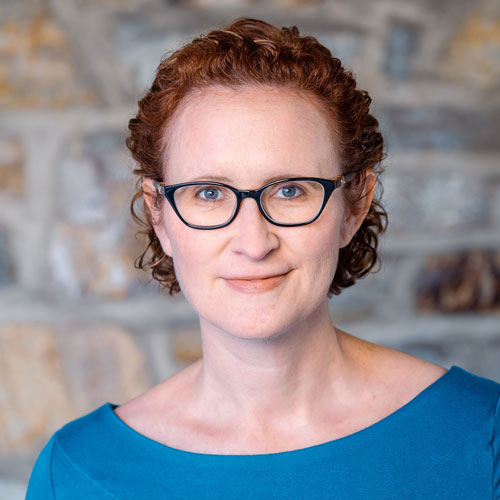
Jennifer da Rosa
Director
jenn.darosa@goucher.edu
Jennifer (Jenn) da Rosa, Ed.D. is the inaugural Director of the Environmental Sustainability and Management graduate program at Goucher College. She is an Assistant Professor of Environmental Studies with a specialization in climate change education. Dr. da Rosa has a background in geology, oceanography, and climate science education. Her work focuses on the social dimensions of climate change, particularly how education, policy, and behavioral economics shape public understanding and action.
Dr. da Rosa’s research explores the intersections of climate science, policy adoption, and societal attitudes, with an emphasis on climate change misconceptions and resistance to scientific consensus. She is also interested in how extreme weather events influence climate policy, as well as the role of environmental education in shifting public perceptions and behaviors. Her current research examines the politicization of science, both historically and in the present, to better understand the forces shaping public trust in scientific institutions. She advocates for experiential and active learning strategies to engage diverse audiences, particularly adult learners and policymakers, in meaningful climate action.
Prior to arriving at Goucher College, Dr. da Rosa served as the Assistant Program Director for Johns Hopkins University’s M.S. in Environmental Sciences and Policy and M.S. in Energy Policy and Climate programs, taught as an instructor with the United States Naval Academy’s STEM Center for Education and Outreach, and served as a civilian oceanographer for the Naval Oceanographic Office’s Warfighting Support Center at Stennis Space Center, Mississippi.

Matthew Budinger
Adjunct Lecturer
matthew.budinger@goucher.edu
Matt Budinger is an accomplished educator with more than twenty years of experience teaching at the elementary, secondary, and graduate level. He serves as a Science Resource Teacher for Baltimore County Public Schools where he instructs middle and high school students in canoe-based ecology studies, freshwater ecosystem studies, and other outdoor and indoor science investigations. There, Matt has spearheaded efforts to modify programming to make outdoor education accessible for students with significant physical, developmental, and neurocognitive differences, as well as multilingual learners, and has presented to educators on ways to make their programming more inclusive.
In addition to formal teaching experience, Matt has been involved in the statewide Envirothon competition, Maryland Association for Environmental and Outdoor Education Green School initiatives, and has created programs for the Maryland Summer Centers for Gifted and Talented Youth in urban sustainability and geospatial technologies. He has been recognized by the Maryland Water Monitoring Council and received the “Above and Beyond” award for his outstanding teaching and contributions to the field. Additionally, he has been selected as the Maryland Ornithological Society John Wortman Scholar to attend a Field Ornithology Workshop in Maine, as well as a Climate Status Investigation at the Keystone Center in Colorado. In addition to his work with Maryland’s public schools, Matt has developed and taught a graduate level course called Environmental Concepts, Principles, and Applications at the University of Maryland Baltimore County. His work has been featured on Maryland Public Television and in The Coming Coast, a documentary examining rising sea levels on the Chesapeake Bay. Areas of expertise include science curriculum development including meaningful watershed educational experiences, science teacher professional development, and freshwater and estuarine ecology.

Maggie Cavey
Adjunct Lecturer
maggie.cavey@goucher.edu
Maggie Cavey serves as an adjunct professor, bringing a wealth of expertise and passion for effective science communication to Goucher’s academic community. In addition to being an educator, Maggie is a dedicated Beneficial Use Planner with the Maryland Department of Natural Resources, where her work extends to collaborating with government organizations, non-profits, and communities.
Maggie is deeply committed to the art of communicating science in ways that resonate profoundly with diverse audiences. With a comprehensive understanding of the challenges faced by scientific endeavors, she recognizes the pivotal role communication plays in creating understanding and driving positive change. From the dynamic realm of TikTok to the rigorous standards of scientific journals, Maggie acknowledges the diverse ways in which people are interconnected today and emphasizes the critical importance of strategic communication in influencing perspectives and promoting impactful transformations.
With academic credentials that reflect a multidisciplinary approach, Maggie holds a Bachelor of Arts in Environmental Studies and Political Science, with a minor in Business from West Virginia Wesleyan College as well as a Master's in Environmental Education from Slippery Rock University.
Maggie is honored to contribute to Goucher College's commitment to excellence in education and looks forward to the impact she will make in inspiring the next generation of environmental stewards. Maggie teaches ENV 615 – Environmental Communication & Media.

Barry Dornfield
Adjunct Lecturer
barry.dornfeld@goucher.edu
Barry Dornfield is a Principal at CFAR, a management consulting firm in Philadelphia, a documentary filmmaker, a media researcher, and an educator. His documentary work includes: "Eatala: A Life in Klezmer," co-produced with the Philadelphia Folklore Project and broadcast in Philadelphia; "LaVaughn Robinson: Dancing History;" "Gandy Dancers," portraying the expressive culture and history of African-American railroad workers in the US; "Look Forward and Carry on the Past: Stories from Philadelphia's Chinatown;" "Powerhouse for God" and "Plenty of Good Women Dancers: African-American Women Hoofers in Philadelphia." Dornfeld recently co-authored The Moment You Can't Ignore: When Big Trouble Leads to a Great Future, with Mal O'Connor (Public Affairs 2014). He has taught at New York University and chaired the Communication Department at the University of the Arts, Philadelphia.
Ph.D., Annenberg School for Communication
B.A., Tufts University
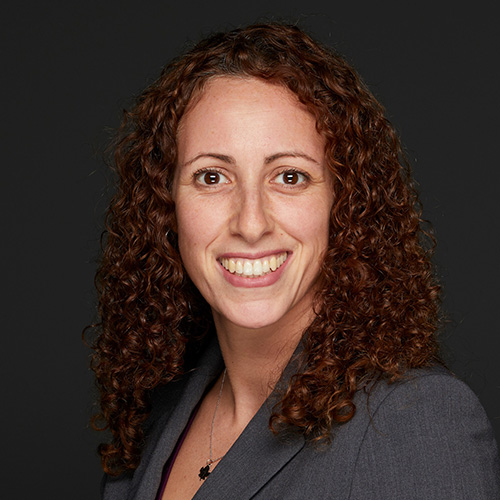
Sandra Elvin
Adjunct Lecturer
sandra.elvin@goucher.edu
Dr. Sandra Elvin is a conservation and security risk professional. She was previously the Director of Expeditions for the National Geographic Society's climate change impact initiative. In the field, she directed a scientific expedition to Mount Everest and a sea-to-source expedition on the Ganges River from Bangladesh to India. She maintained the logistics and safety aspects while ensuring scientific and policy objectives were met. Sandra completed her doctoral degree in environmental studies at York University in Canada where she examined the adverse effects of industrial development on black bears. She earned her master's degree at Dalhousie University in Canada where she addressed collisions between North Atlantic right whales and commercial vessels from a scientific and policy perspective. She completed another graduate degree in conservation criminology where she examined the illegal wildlife trade. In her previous roles, she was a professional guide on polar bear and beluga whale trips in Canada, giant panda and Asiatic black bear trips in China, and snow leopard expeditions in Mongolia. She also worked for the Association of Zoos and Aquariums establishing the inaugural Saving Animals From Extinction program. She has vast international experience having worked in Canada, the United States, Kenya, and the Philippines, and traveled extensively throughout all continents except Antarctica.
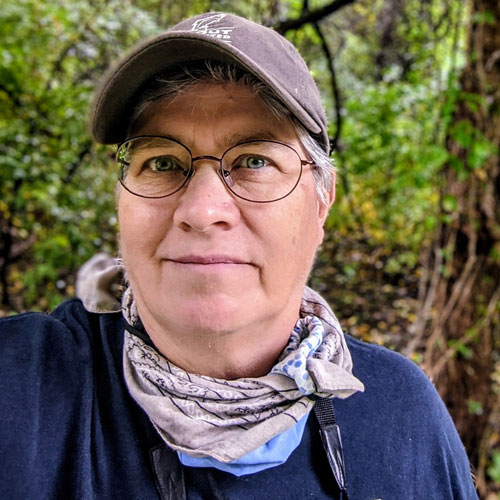
Peggy Eppig
Adjunct Lecturer
margaret.eppig@goucher.edu
Peggy Eppig is a lecturer at Goucher College in undergraduate and graduate Environmental Studies. She serves as ranger-educator and project coordinator for the Lancaster Conservancy where she applies ecology and landscape history to her work in ecological restoration and public education. Her research includes pilgrimage studies and environmental history.
Ph.D. in Environmental Studies, Antioch University New England
B.F.A. Maryland College of Art

Robert Forloney
Adjunct Lecturer
robert.forloney@goucher.edu
Robert Forloney is a Cultural Institution Consultant working with a number of clients to develop innovative programs, train interpreters and facilitate strategic planning. He has worked in the museum field for more than twenty years as a teacher for the New York City Museum School as well as an educator, administrator and consultant at institutions such as the Brooklyn Museum of Art, the Museum of the City of New York, the Morgan Library, American Museum of Natural History, the Museum of Modern Art and the South Street Seaport Museum. Most recently he served as the Director of Breene Kerr Center for Chesapeake Studies at the Chesapeake Bay Maritime Museum where he oversaw interpretative, academic, folklife and exhibition programs. In addition, he has formally taught as a classroom teacher for the New York City Museum School, adjunct faculty at Goucher College, University of Delaware and Johns Hopkins University.
Trained in both formal and informal teaching methodologies, much of his work has been directly related to integrating these theories into innovative programming for diverse public audiences. His goal is to enable all audiences to actively engage objects, images and exhibitions in order to successfully access visual and textual information, acquire new knowledge and create personal meaning. Robert strives to ensure that communities have their voice heard and are empowered by the cultural institutions that attempt to share their stories.
Areas of expertise include program development for diverse audiences, interpreter training, staff supervision and coordination, community engagement, exhibition design, grant writing and management as well as strategic planning for cultural institutions.
M.A in Humanities and Social Thought, New York University
Teaching Certificate, Bank Street College of Education
B.F.A. in Fine Arts/Sculpture, Parsons School of Design, New School for Social Research

David Grossman
Professor
david.grossman@goucher.edu
David Grossman has been a member of Goucher’s faculty since January 2011. He teaches international business environment, international case studies, international consulting, negotiations, marketing management, international marketing, and strategic management. In addition, he teaches a marketing course in the graduate program. Dr. Grossman offers an ICA to Cuba where he provides students with an opportunity to learn and interact with business leaders and entrepreneurs to see how cultural and business practices differ from what they experience at home.
Students in Dr. Grossman’s classes incorporate topics by applying them into practical situations on campus and in the community for various entities. Goucher alumni applaud Dr. Grossman’s teaching methods in helping them prepare for life after school. Dr. Grossman’s greatest pleasure in the classroom is watching students evolve into confident problem solvers in the strategic management course, the business capstone.
Dr. Grossman’s areas of interest focus on market entry strategies, aspirations of the middle-class consumer, and entrepreneurial spirit in emerging markets. His scholarly work includes these topics that have been published in journals such as, The Journal of World Business, Thunderbird International Business Review, and International Business Review.
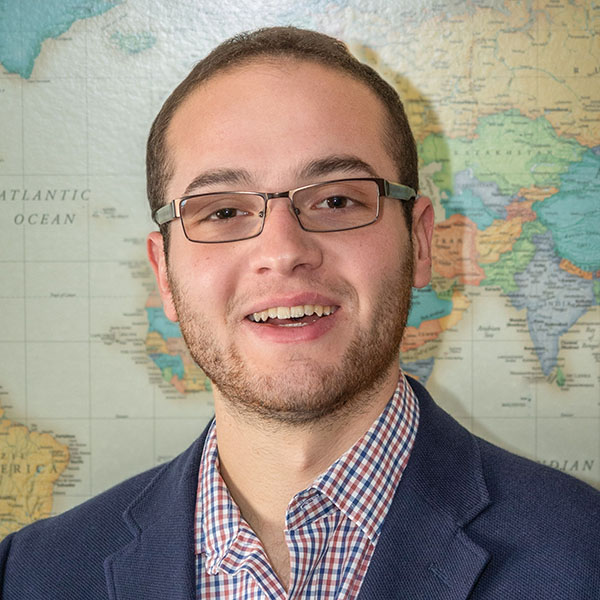
Zachary Krauss
Adjunct Lecturer
zachary.krauss@goucher.edu
Zach Krauss is currently the Director of Research Institute Communications for the Alabama Water Institute at The University of Alabama. Here, he puts his inter-/transdisciplinary background to use leading the communication of the diverse cutting-edge water research conducted at UA, with a goal of translating research for use in industry and operations. In this role, Zach leads a diverse team of scientific communicators working to communicate the research conducted by NOAA's $360 million Cooperative Institute for Research to Operations in Hydrology. The team creates a breadth of communications, marketing, storytelling, and educational material surrounding everything water, with a focus on flood and drought prediction, global water security, and nature-based solutions to water problems.
Zach holds a Master of Science in Integrated Scientific Applications (Environmental Earth Systems Management Concentration) from Millersville University and a Bachelor of Science in Atmospheric Science from Cornell University. While at Millersville, Zach served as a Graduate Research Assistant in the Education Foundations department working on an NSF to develop a career-oriented middle school watershed sustainability curriculum. Zach’s passion for education and outreach stretches back to his years as The Weather Wizard and Education & Outreach Chair for the Cornell Chapter of the American Meteorological society, visiting over 40 classrooms to teach about weather and physical sciences. Zach is also Owner & Chief Meteorologist of SWCT/NY Weather LLC, a hyperlocal weather forecasting and consulting firm based in New York which focuses on translating forecasts into actionable decision support. In his free time, Zach loves to travel—exploring nature, attending concerts, and trying new foods—as well as keep in touch with his family in New York and girlfriend in Pennsylvania.
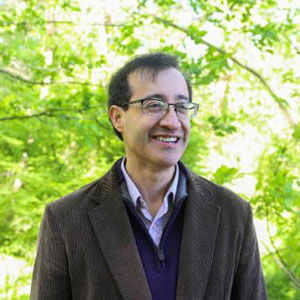
Germán Mora
Professor
german.mora@goucher.edu
Germán Mora is a Professor of Environmental Studies at Goucher College. His Ph.D. research focused on past climate changes. Prior to arriving at Goucher, he was a post-doctoral fellow at the Johns Hopkins University, working on the water management in forested areas, and taught at Iowa State University and Montgomery College. At Goucher College, he teaches a broad range of survey and thematic courses that address the intersectionality of science and society in regards to understanding and addressing environmental issues. His research explores the effects of urbanization on water quality and the provision of ecological services, shifts in the water cycle as a result of past climatic events, and more effective pedagogical strategies to improve environmental literacy.

Gina Shamshack
Professor
gina.shamshak@goucher.edu
Gina Shamshak is an environmental and natural resource economist who specializes in fisheries and aquaculture economics. Her dissertation research examined the economics of offshore bluefin tuna aquaculture in the United States by developing a dynamic stochastic bioeconomic model of this form of production. She has also published on the highly valued global geoduck market. Her current research agenda focuses on seafood markets, fishing communities and the fishing industry in the state of Georgia. Wherever possible, she looks to bring her research into the classroom as a way to motivate and demonstrate economic concepts in action. Plus, she cannot resist a good fish story.
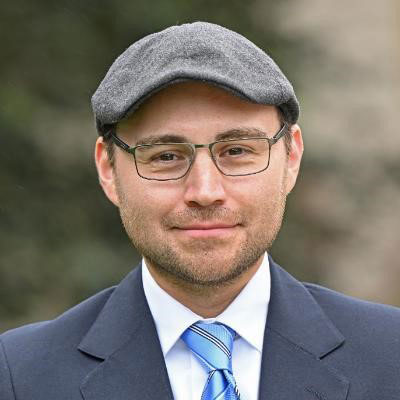
Christopher Torres
Assistant Professor
chris.torres@goucher.edu
Christopher Torres is currently the Jane and Robert E. Meyerhoff Assistant Professor of Environmental Studies at Goucher College. He completed his Ph.D. in Public Policy and Administration at Boise State University in 2021. His training is at the intersection of philosophy, environmental studies, policy studies, and public administration. Prior to Goucher, he taught at Connecticut College, College of Idaho, and Boise State University. At Goucher, he teaches courses like Introduction to Environmental Studies (ES 140), Environmental Justice (ES 410), and, starting soon, courses covering US environmental politics, policy, and law. He also serves as Co-Director of the Language House program; Spanish. His current research project is looking to better understand conservative environmental values and how they shape U.S. environmental politics and policy. Other research interests include exploring the relationship between public administration, public perceptions of “bureaucracy”, and public trust in democratic institutions.
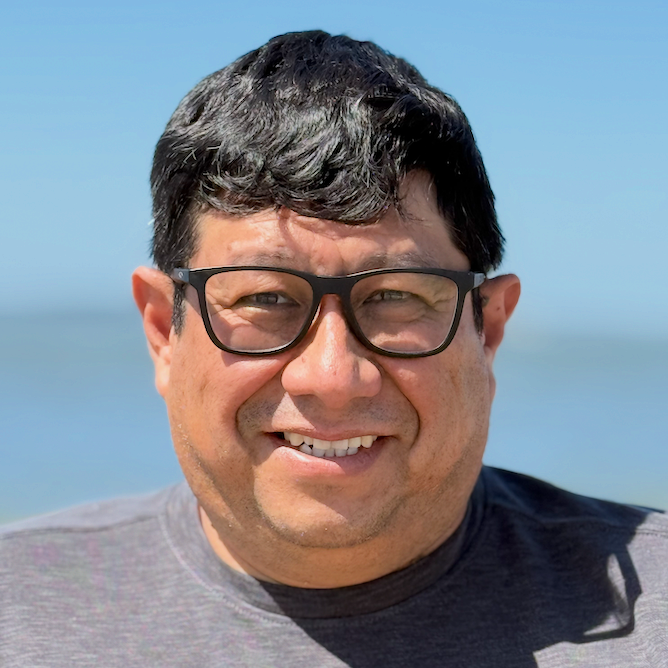
Oswaldo Villena
Adjunct Lecturer
Oswaldo.VillenaCarpio@goucher.edu
Dr. Oswaldo Villena is a Research Fellow at The Earth Commons at Georgetown University. His research integrates statistics and GIS to understand ecological processes in epidemiology and public health, with a focus on the effects of climate change on vector-borne diseases. Oswaldo’s paper, "Influence of environmental, geographic, socio-demographic, and epidemiological factors on the presence of malaria at the community level in two continents," was recognized as one of the Top 100 most downloaded Microbiology papers of 2024.
Oswaldo holds a Ph.D. in Marine, Estuarine, and Environmental Sciences from the University of Maryland College Park, an M.S. in Environmental Sciences from Towson University, and an M.S. in Agrarian Innovation for Rural Development from the National Agrarian University in Peru. His most recent work examined the environmental and geographical factors that influence malaria transmission in South Africa.
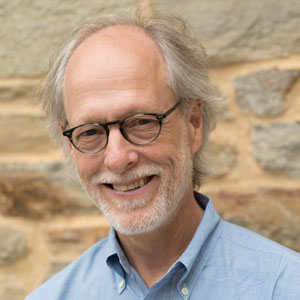
Thomas Walker
Assistant Professor of Practice
thomas.walker@goucher.edu
Thomas Walker's work focuses on a human dimensions approach to the study of the natural and built environments. He has worked in museums and arts organizations, including a virtual museum developed at Indiana University based on a collection of historic log buildings and documentation of traditional culture of the area. He has also conducted oral histories of historic preservation in Indiana and documented maritime culture in the Chesapeake Bay region as well as in New York harbor to contextualize the history of the seaport and its collection of historic vessels and buildings. As a venture philanthropist, he has served as a trustee for the Alex C. Walker Foundation, which funds research, policy, and projects investigating environmental economics in areas of climate change, energy and tax policy, ecosystem services, ecotourism, and sustainability in forests and fisheries.
Ph.D in Folklore and Anthropology, Indiana University-Bloomington
M.A. in Folklore and Anthropology, Indiana University-Bloomington
B.A. in English, St. Lawrence University
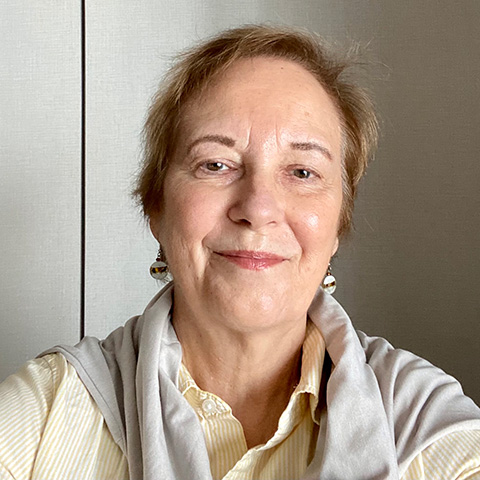
Diana Watts
Adjunct Lecturer
diana.watts@goucher.edu
Dr. Diana Watts brings an interdisciplinary background in political economy to the study of sustainability and adaptive change. Dr. Watts’ research and teaching centers on sustainability initiatives that engage markets/ politics, civil society. A specific interest is on social innovation and social entrepreneurs. Additionally, transdisciplinary pedagogy, bringing social science “thinking” to environmental scientists is an area of current research.
With a passion for teaching, Dr. Watts has designed and developed numerous courses for undergraduate and graduate programs, including Sustainable Business, Understanding Institutions: The Business of Food, Is Globalization Good? and Managing Responsible Organizations for the Ecosystem. Dr. Watts serves as a mentor for the Innovation Lab and Board member of BethesdaGreen.
She currently lectures at the Johns Hopkins University, Environmental Sciences and Policy Program, is Professor Emeritus, Trinity Washington University and Research Associate at ESPOL, University of Lille.
She received her PhD from the University of California, Berkeley, and MA degree from Johns Hopkins University, School of Advanced International Studies (Bologna, IT/ Washington, D.C.).
